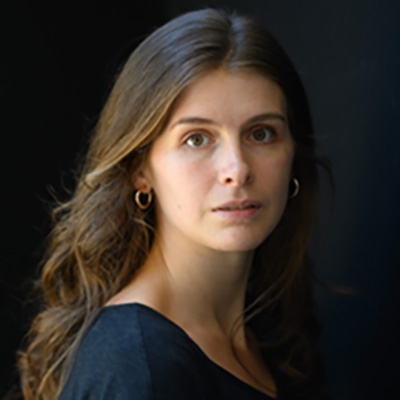
Hannah Badley
PhD in Social and Behavioral Sciences
My name is Hannah Badley, and I am a second year Social and Behavioral Sciences PhD student studying at The University of Memphis’s School of Public Health set to graduate in Spring 2025. As a transplant to Memphis, at first, I found it challenging to apply public health principles outside of a theoretical context. However, as my time as both a scholar within the university and a participant in the community grew, I began to find points of connection within the city that allowed me to not only expand my growth as a student in public health but also facilitate the dispersion of knowledge from the classroom to the city. During my first year in the program, I had the privilege of being chosen as a Robert Wood Johnson Foundation (RWFJ) Academic Equity Fellow. This fellowship allowed me to expand my understanding of the importance of academic equity within higher education because it distilled these issues into comprehensible sessions that used both somatic-based and systems-level thinking exercises to increase overall student engagement.
The RWJF fellowship allowed me to expand my understanding of academic equity within the context of graduate-level education by fostering an environment of empathy and offering resources curated to increase both short-and long-term equity outcomes for students. One example of the effects of this expansion can be seen in my work as a Teaching Assistant (TA) with Dr. Rajesh Melaram and Dean Joshi with the high-school dual-enrollment program the School of Public Health launched in Fall 2023 as a partnership with Memphis/s Shelby County Schools. The first program of its kind, this class exposed juniors and seniors at local high schools to public health issues such as Social Determinants of Health (SDOH), health equity, and environmental justice. Feedback from the students throughout the semester consistently pointed towards the idea that these students were experiencing the effects of public health issues every day. Still, this class finally gave them a language to understand those experiences and an outlet to express them. I am grateful that my time at the School of Public Health allowed me to participate in this program because it further instilled in me the idea that public health is a practice meant to be shared by the community with members of all ages and backgrounds.
Some significant contributions I have made to public health during my time in this program include engagement and qualitative data collection and analysis as a part of a Youth Participatory Action Research (YPAR) project working with the Youth Justice Action Council (YJAC) at BRIDGES, a local community organization. I have also worked with former faculty member Dr. Jen Turchi to produce research (currently under review) examining source documents from the Department of Justice detailing their investigation into allegations of Disproportionate Minority Contact (DMC) within Memphis/Shelby County Office of Juvenile Justice and the Shelby County Juvenile Detention Center. I currently work with my advisor, Dr. Latrice Pichon, who focuses on increasing access to community-based healthcare resources for individuals impacted by HIV health disparities in the Mid-South. I also work as an intern with St. Jude Children’s Research Hospital in the STEMM program which uses afterschool programming to increase biodiversity in the medical workforce.
A distinctive experience I have had during my time here is the warmth and acceptance of the faculty and administrative staff and the prioritization of student's voices in department-wide decision making. Moving to a new city is always a challenge, but the people that you meet in the beginning phases of this transition can truly transform the outcome. I have had faculty here at the university open not only their office doors but also their hearts and even their homes to me. This level of care can transform education into community and is, to me, a testament to the faculty’s commitment to seeing students not only succeed academically but thrive during that process. During Fall ’23, I had the privilege of participating on several student interview committees as the department conducted national faculty searches. To me, this speaks volumes about the school’s overall view of the student’s voice as something that should be celebrated and included in decision-making.
I came to public health with a non-traditional educational background, with my career experience in community-based intervention accounting for the bulk of my knowledge of public health. At first, I felt a strong sense of “imposter syndrome” worried that my lack of theoretical expertise would be seen as a sign of academic weakness. While the initial learning curve was steep, as the semesters progressed, I began to see that at the School of Public Health, each student’s lived experiences and prior career paths are celebrated as an addition to the kaleidoscope of knowledge needed to address multi-factorial public health problems. Public health is a field that self-admittedly often struggles with maintaining public trust, but my time at this school has taught me that one of the best ways to engender that trust is to prioritize the voices of the public by allowing non-traditional students a seat at the table. By welcoming and celebrating input at every level, from mid-career health department employees to 17-year-old high school juniors, SPH at UofM embodies public health equity as a practice and not just theory.

